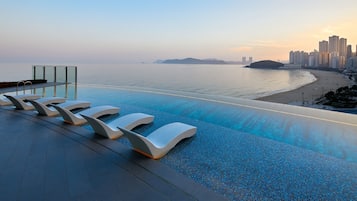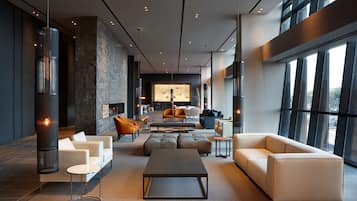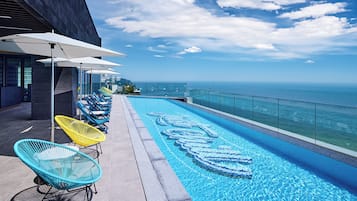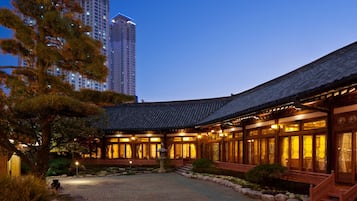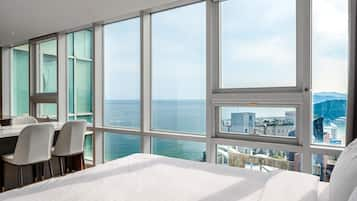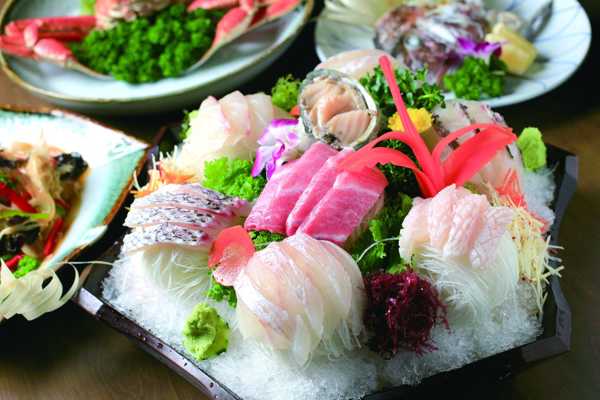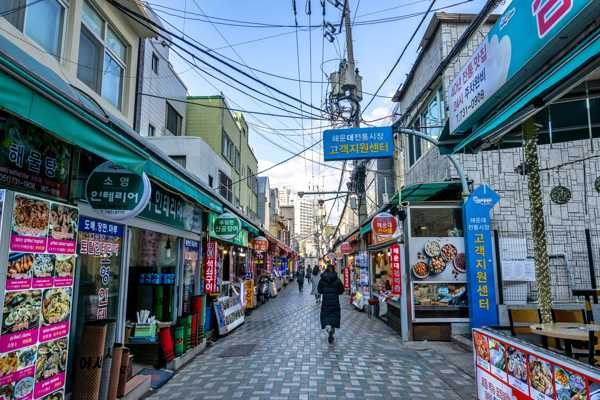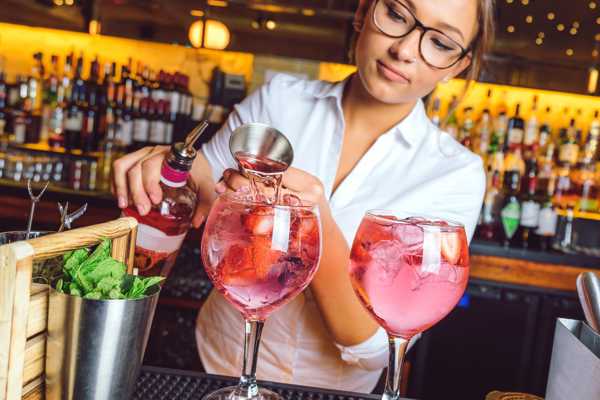Busan has many distinctive streets where you can enjoy shopping or take leisurely walks. Seomyeon First Street, Gwangbok-ro Culture and Fashion Street, Haeundae Rodeo Street, and Pusan National University Shopping Street are lined with stores selling clothes, accessories, cosmetics, and jewellery for customers of all ages. Each street has its own distinct characteristics. At BIFF Square and on Nampo-dong Street, you can learn about the history of the Busan International Film Festival and also enjoy famous food.
Texas Street, along with China Town, is a spot to enjoy the exotic scenery of this port city. In Gamcheon Culture Village and on the Forty Stairs Street, artworks created on the basis of the painful modern history of Korea are on display. Showing the traces of modern and contemporary Busan, these locations exude their own unique charm. Enjoy your trip to the fullest by exploring the streets of Busan offering unique and different charms!
- 1
Seomyeon 1-beonga
Popular meeting spot for Busan youths

- Food
- Nightlife
- Shoppers
Seomyeon 1-beonga is a street teeming with a youthful spirit, packed with famous restaurants and cafes. This street is the busiest in Seomyeon and the most visited place by the young generation thanks to its artistic vibe. The long street illuminated by colourful lights is dotted with cafes and restaurants, and nightclubs, arcades, and PC rooms are lit up all night to attract nighttime sightseers.
In spring and autumn, various festivals take place around temporary stages, and many street performances are held all year round. On weekends, the street hosts multiple cultural events such as performances by amateur street bands, portrait painting, and plays. Gourmand alley across the street has restaurants serving popular local foods such as dwaeji gukbap (pork soup with rice), kalguksu (noodle soup), and Busan eomuk (fish cakes) at reasonable prices.
Mapphoto by Minseong Kim (CC BY-SA 4.0) modified
- 2
Gwangbok-ro Culture and Fashion Street
Retail street close to various attractions

- Shoppers
Gwangbok-ro Culture and Fashion Street is a lively shopping area dealing in all kinds of fashion products located close to various tourist attractions. From simplified hanbok to eyewear, sportswear, outdoor goods, and high-fashion goods, a huge selection of fashion items can be found on the street, where different types of stores cater to customers of all generations, from young people to senior citizens. Every April, the Gwangbok-ro Fashion and Art Festival is held to raise the status of the street as the fashion centre of Busan and revitalize the local economy.
Gwangbok-ro Culture and Fashion Street is connected to the Busan Modern History Museum, where you can get a vivid glimpse of the modern history of Busan during the Japanese occupation. The street provides easy access to other various tourist attractions such as Jagalchi Market, Gukje Market, Kkangtong Market, Gourmand Alley, BIFF Square, and Yongdusan Park, so don't forget to visit some of these popular sights after shopping.
Mapphoto by Christophe95 (CC BY-SA 4.0) modified
- 3
Haeundae Rodeo Street
Get good deals from your favourite brands

- Food
- Shoppers
Haeundae Rodeo Street is a one-stop shopping paradise where you can shop from a variety of fashion brands and find famous restaurants and cafes. Permanent discount stores concentrated on the street provide fashion accessories and clothes at affordable prices. There are also stores of many different kinds of brands including sportswear, and imported clothing brands. If you are lucky, you can get quality fashion items at great discounts.
Rodeo Street attracts many shoppers as it provides a wide selection for all age groups. Another advantage of shopping on this street is that you can compare different styles and brands to choose from according to your taste. As the street is connected to Haeundae Beach, you can first visit the beach to appreciate the seascape and then make your way to the street for leisurely shopping.
Map - 4
Haeundaehaebyeon-ro
Stroll along the beautiful seaside street

- Couples
- Families
Haeundaehaebyeon-ro is a street ideal for enjoying a walk or a drive against the beautiful scenery. The street runs from Millakgyo Bridge in U-dong to Osan Park in Jung-dong along Haeundae Beach. The 1.75-km section from Udonghang Samgeori to Dongbaek Sageori is a famous tree-lined street. Camellia, Kurogane holly, and Japanese bay trees growing on both sides of this street block the heat and exhaust gases from the road and present a spectacular view. In particular, the camellia blossoms that bloom in winter create an elegant yet passionate impression.
Luxury hotels, Dongbaek Park, and Nurimaru APEC House also catch your eyes. How about walking along the street, stopping by Dongbaek Park for a walk along the calm promenade, and then hiking up to Nurimaru Observatory to appreciate the magnificent view of Haeundae? Haeundaehaebyeon-ro is a popular street where you can enjoy the refreshing seascape, urban vibe, and natural scenery at the same time.
Mapphoto by bryan... (CC BY-SA 2.0) modified
- 5
BIFF Square
Cinema street full of things to see and taste

- Families
- Food
BIFF Square was created by renovating a district in Nampo-dong where theatres were concentrated. Since the opening of the Busan Cinema Centre in Centum City, Haeundae, the square has been the venue for events held on the eve of the Busan International Film Festival. This small plaza located next to Busan Theatre preserves the handprints of famous Korean and foreign film directors and actors on the ground.
BIFF Square is also well-known for its food street where a variety of local foods can be found. In particular, ssiat hotteok is most popular with tourists. This chewy griddlecake stuffed with sugar and seeds will entertain your palate with its sweet and nutty taste. Other popular local foods that you can taste here include gimbap, spicy squid salad, flat dumplings, and eomuk (fish cakes). While enjoying the film festival, take a gourmet tour of food stalls lined up along the street.
Mapphoto by bryan... (CC BY-SA 2.0) modified
- 6
Texas Street
Meet various cultures on an exotic street

- Food
Texas Street, located across from Busan Station, is an exotic place where various cultures mix. During the Korean War, pubs and shops for American soldiers opened in this area one after another, giving birth to today's Texas Street. After the establishment of diplomatic ties between Korea and Russia in 1991, Russian sailors and merchants started to frequent this street, making Russian culture an important part of this place. Shops with Cyrillic signboards and mustang clothing and thick gloves on display that are reminiscent of the cold weather of Russia add to the exotic vibe of the street. Although many years have passed, this street still attracts foreigners of various nationalities.
Crossing the street at the end of Texas Street, you will come across Chinatown. Chinese restaurants, dumpling restaurants, traditional tea houses, and colourful decorations will make you feel like you are in China. Explore Texas Street and Chinatown and experience the former status of Busan Port as a gateway to Korea.
Mapphoto by Christophe95 (CC BY-SA 4.0) modified
- 7
Nampo-dong Street
A hot spot for cinephiles crowded with food stalls and tourists

- Couples
- Families
- Food
Nampo-dong Street, also called Nampo-dong Film Street, is lined with many food stalls and restaurants. The street is always a bit crowded, but turns literally into a sea of people during the film festival period. While the old famous movie theatres have been demolished and replaced by large multiplexes, the Busan Theatre, which was also used as a provisional National Assembly building during the Korean War, still retains its name.
Food stalls facing both sides of the street serve Nampo-dong's most famous speciality, ssiat hotteok, as well as various local foods such as tteokbokki, fish cakes, and flat dumplings. While the street comes much more alive during the film festival, it is a place perfect for people watching at other times of the year as well. Feel the vibrant atmosphere of Busan at Nampo-dong Street.
Mapphoto by Christophe95 (CC BY-SA 4.0) modified
- 8
Pusan National University Fashion Street
Shop for trendy fashion items at affordable prices

- Budget
- Food
- Shoppers
Pusan National University Shopping Street is a place where you can easily find unique clothes and accessories that cater to the tastes of those in their early to mid-20s. This street, which runs from Pusan National University subway station to Pusan National University, is one of the largest commercial districts in Busan.
The area has many distinctive clothing stores and discount stores for famous brands. These stores provide a wide range of fashion items at affordable prices for college students. In every alleyway, you can see accessories, cosmetics, and clothes of the latest trends filling the shop windows. This street full of the energy of youth is ever-changing following fashion trends. When you get peckish while shopping, you can try a variety of street foods. As the street is located in the university district, there are many restaurants that are worth every penny.
Map - 9
Gamcheon Culture Village
Artistic interior accessories and souvenirs in every corner
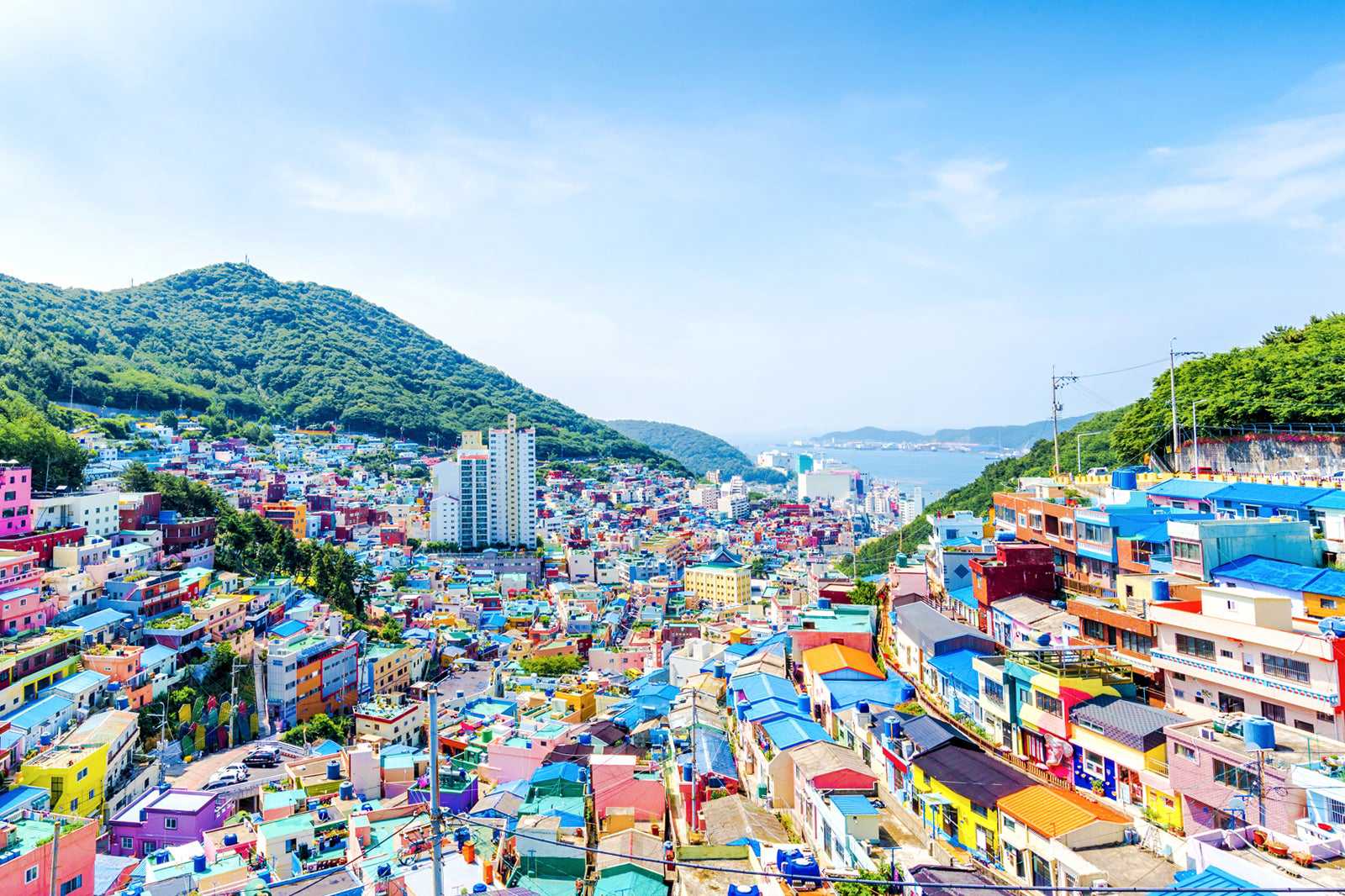
- Budget
- History
- Photo
Gamcheon Culture Village, which was a village formed by refugees during the Korean War, has been transformed into a unique space where culture and art meet. There are many characterful souvenir shops offering unique goods of the village. You can also find various craftworks where you can carve your name or any phrase you want, which will make a good souvenir as well.
Among the goods are retro-style interior accessories and items, and fragrant flower tea. Enjoy delicious snacks in the colourful alleyways and leisurely shop for pretty handicrafts and interior accessories. It is also recommended to purchase a stamp map and complete a tour of the maze-like village by collecting all the stamps. You will discover a variety of works of art and photo spots hidden throughout the village.
Map - 10
Forty Stairs Street
A street imbued with the hometown nostalgia of refugees

- Budget
- History
Forty Stairs Street is a theme street created around the Forty Stairs that symbolize the sorrows and hometown nostalgia that refugees felt during the Korean War. Back in those days, the street, connecting Busan Port pier and shantytowns, was a place where families who had been separated by the war reunited and where people traded relief supplies.
At the entrance of the street, the Peace Gate stands tall, from which 140-metre-long train tracks start. The Forty Stairs begin where a monument is erected and in the middle of the stairs, you can see a statue of an accordionist that has become the symbol of this place. Other various statues are displayed along the railroad tracks running across the street and movie posters from the 1950s and 1960s that can be seen in every corner recreate the atmosphere of that time. At the Forty Stairs Cultural Centre, you can learn more about Busan's modern history and culture.
Mapphoto by Mobius6 (CC BY-SA 4.0) modified






